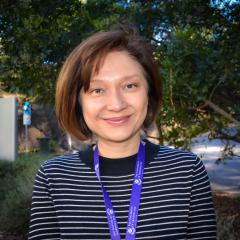What we do
Technological changes such as AI and innovations in bio-medical science are set to disrupt social and economic structures. ISSR social scientists are at the forefront of work with industry and governments to document the societal benefits and develop methods and strategies for managing adverse societal impacts. For example, our ARC Centres of Excellence researchers are exploring digital life and digital futures for children and families and the role of technology in reducing entrenched disadvantage.
Our researchers use advanced analytics on big social service data sets to improve risk identification and targeting of services, demonstrating how these technologies can be used for benefit in the public sector as well as the private sector. We lead the use and development of new analysis methods (e.g. actigraphy), new technologies (e.g. light sampling approaches) and technology-based interventions (e.g. the use of wearables to support behaviour change).
Our researchers work with a range of technological disciplines to address the social and human contexts of science and innovation including ethical concerns and community licence.
Objectives
-
Evaluating the social impacts of technology including AI and ubiquitous monitoring
-
Co-developing socially informed and human centred applications
-
Democratising science, innovation and technology
Case Studies
 Exploring the use of predictive analytics to improve practice and outcomes in child welfare in Queensland
Exploring the use of predictive analytics to improve practice and outcomes in child welfare in Queensland
Client: Queensland Department of Child Safety, Youth and Women
Lead: Professor Rhema Vaithianathan
Term: 2019 - 2020
Webinars
Ethical Data Science for Social Impact
Download Focus Area Flyer -
Social Science of Innovation & Technology



















































